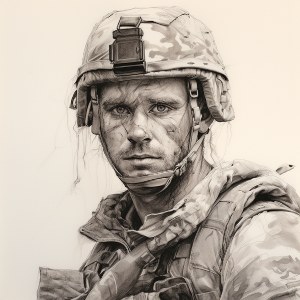George Mason University Research | By Leah Kerkman Fogarty | Posted: March 15, 2011
War is tragic, it’s true. But there is a sliver of a silver lining for those injured by war. Over the past century, our understanding of the brain has improved with every modern war. The reason? Wounded soldiers with traumatic brain injuries (TBIs) have provided neuroscientists with prime examples of how different parts of the brain control different functions, such as attention, impulse control, and emotions. Mason cognitive neuroscientist Frank Krueger has been studying warfighters’ brain injuries and their cognitive effects since 2006, when he was a postdoctoral fellow at the National Institute of Neurological Disorders and Stroke, a part of the National Institutes of Health (NIH), under the mentorship of Jordan Grafman.



